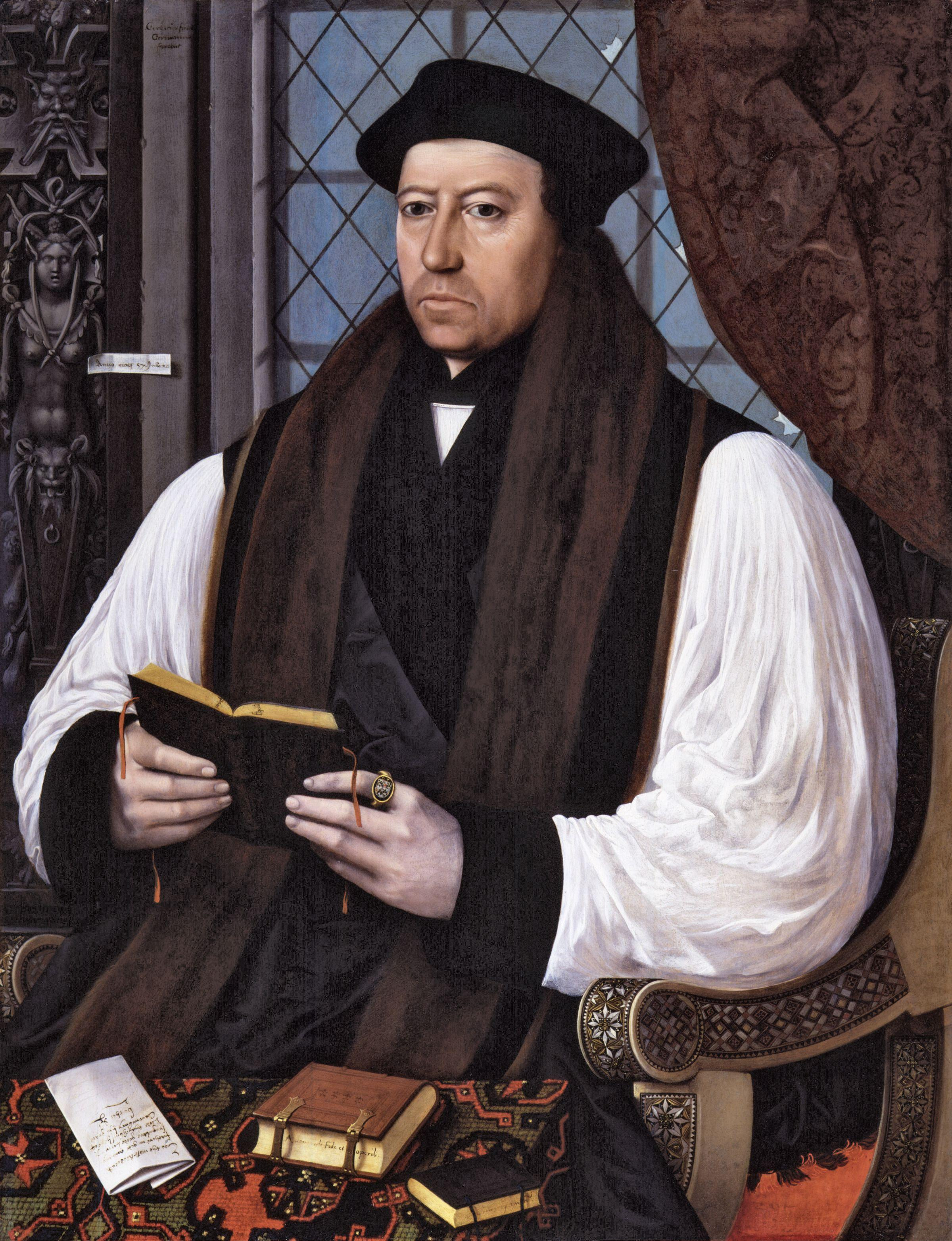Thomas Cranmer byl hlavním představitelem reformace v Anglii a arcibiskupem canterburským v době vlády Jindřicha VIII. a Eduarda VI. Pomohl vytvořit podmínky pro rozvod Jindřicha VIII. a jeho první manželky Kateřiny, které vedly k odloučení Anglikánské církve od římskokatolické církve. Spolu s Thomasem Cromwellem podpořili princip, který definuje anglického panovníka jako vrchního představitele církve v Anglii.
V době kdy byl Cranmer arcibiskupem, byl zodpovědný za ustavení doktrinářské a liturgické struktury Anglikánské církve. Za vlády Jindřicha neprováděl Cranmer radikální změny, z důvodů mocenských sporů mezi konzervativci a radikály v církvi. Nicméně podařilo se mu publikovat první autorizovaný anglický text bohoslužby – Exhortation and Litany. Poté co na trůn nastoupil mladý Eduard, byl Cranmer schopen realizovat rozsáhlé reformy. Byl spoluautorem a editorem prvních dvou vydání Knihy společných modliteb . Ve spolupráci s několika reformátory z Evropy, kterým poskytl útočiště, zavedl novou doktrínu v takových oblastech jako svátost oltářní, celibát, roli obrazů v místech, kde se konají bohoslužby a uctívání svatých. Tyto nové doktríny zveřejnil v knihách modliteb, kázání a jiných publikacích.
Když se k vládě dostala Marie I., byl Cranmer obviněn za zradu. Byl vězněn dva roky a pod nátlakem církevních hodnostářů odvolal některé své myšlenky a smířil se s katolickou církví. Nicméně v den své popravy tato odvolání zrušil a zemřel jako protestantský mučedník. Jeho odkazem je především Kniha obecných modliteb a Třicet devět článků, které byly základními díly dalšího vývoje Anglikánské církve.
Wikipedia
✵
2. červenec 1489 – 21. březen 1556
